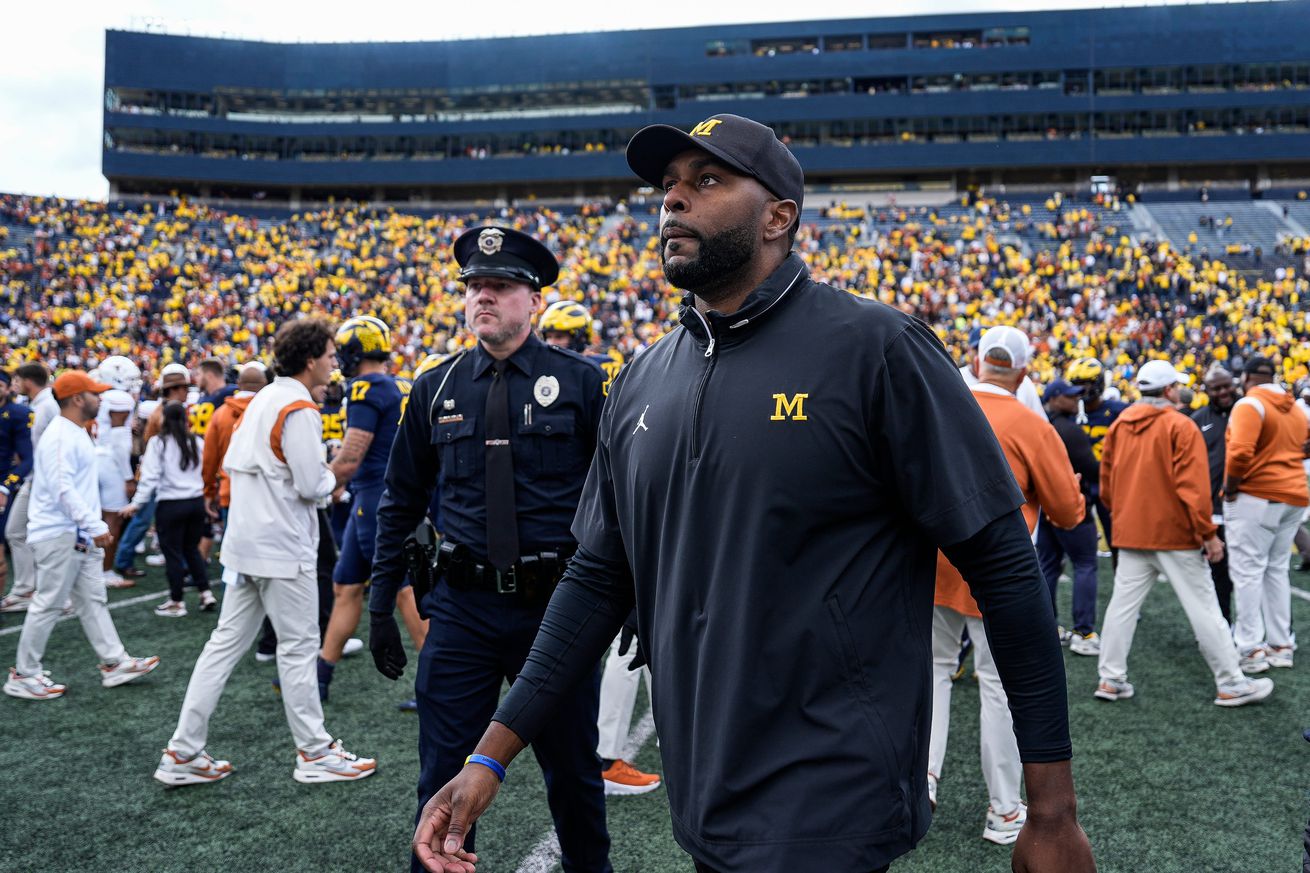
After an up-and-down 8-5 season, Michigan Football has the talent, schedule and momentum to take a big leap forward in 2025 — but only if it fixes some key issues. Here’s what needs to happen for the Wolverines to take the next step:
After a roller coaster 2024 campaign that ended on the highest possible note, Michigan enters 2025 with a clear understanding of where improvement is needed. Head coach Sherrone Moore’s second year at the helm will undoubtedly come with heightened expectations thanks in part to a top-10 freshman class and the addition of a promising transfer portal haul.
However, if the Wolverines are to return to the College Football Playoff conversation, they’ll need to make significant strides in several key areas. Here are the six primary things Michigan must address to take a definitive step forward in 2025.
1. Better QB play
There’s no sugarcoating it — Michigan’s quarterback play in 2024 was among the worst in the nation. The Wolverines averaged just 129.1 passing yards per game, ranking 131st nationally. Davis Warren led the team with 1,199 yards, seven touchdowns and nine interceptions, while inconsistent play forced the Wolverines to lean heavily on the run.
The Bryce Underwood era is expected to begin this fall, and while the freshman phenom’s raw talent is undeniable, he’ll need time to adjust. That’s where veteran transfer Mikey Keene comes in. With 34 starts under his belt, Keene provides a valuable bridge (or insurance policy) if Underwood struggles early on or isn’t quite ready.
2. The OL must improve
Whoever starts at quarterback will need better protection than what we witnessed last season. Michigan’s offensive identity has long been rooted in physical, dominant line play, but that unit was anything but dominant last year. Pass protection was shaky and the run blocking was inconsistent. It made life difficult for the quarterbacks and prevented any rhythm from forming on offense.
Enter: Chip Lindsey, Michigan’s new offensive coordinator. Known for a more aggressive, vertical passing attack, Lindsey will rely heavily on the line to buy time and create lanes. This will not only help the quarterbacks, but also the running backs like Justice Haynes and Jordan Marshall.
3. WRs need to emerge
The departure of Tyler Morris leaves a sizable void in an already underwhelming wide receiver room. Michigan’s inability to stretch the field or generate consistent separation last season was painful to watch and easily allowed for opposing defenses to load the box.
The hope here is the transfer additions of Donaven McCulley and Anthony Simpson will help balance out the loss of Morris. There’s also optimism that guys like Semaj Morgan and Fredrick Moore can still reach their full potential. No matter who it ends up being, someone has to step up as a true No. 1 option.
4. Continue dominating defensively
Despite losing Mason Graham, Kenneth Grant and Will Johnson, Michigan flashed its depth in the ReliaQuest Bowl and shut down Alabama without many of its top defensive contributors. That culture and structure, overseen by returning defensive coordinator Wink Martindale, remains intact.
The key in 2025 will be consistency, especially early. Michigan struggled against the pass in 2024, allowing a 60.2 percent completion rate and a 41.1 percent third-down conversion rate. With Rod Moore potentially returning from injury, along with notable additions like the Metcalf brothers and true freshman Shamari Earls bolstering the secondary, this unit could end up even deeper than last season.
With a strong enough start, especially during road games early in the year at Oklahoma and Nebraska, the defense could carry Michigan while the offense finds its footing.
5. Win road games
Speaking of success on the road, the Wolverines were not good outside of Ann Arbor in 2024, and that won’t fly this year.
Michigan faces a brutal early-season travel schedule in 2025: at Oklahoma in Week 2, at Nebraska in Week 4, and at USC in Week 7. And there’s not a single stretch with back-to-back home games.
This will be a major test for a team that dropped road outings at Washington, Indiana and Illinois last season. But if the Wolverines are to get back into the CFP conversation, they need to be ready to play tough, disciplined football in hostile environments all season long.
6. Finish stronger in the second half
One of the more frustrating trends last season was Michigan’s tendency to fade after halftime. Whether it was the departure of longtime strength and conditioning coach Ben Herbert, poor halftime adjustments or general offensive inefficiency, the Wolverines often sputtered down the stretch of games.
Improving second-half execution will require better game planning, better quarterback play and smarter coaching decisions going forward. With talent up and down the roster, as well as a more manageable schedule, Michigan has every opportunity to return to the top tier of college football.
If the Wolverines fix these issues while maintaining defensive discipline, there’s no reason why this team can’t be in the Big Ten title race and beyond this fall.
